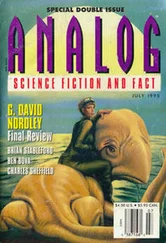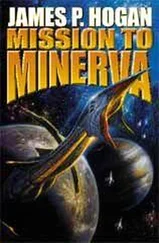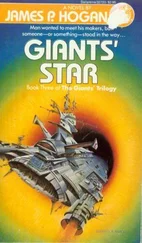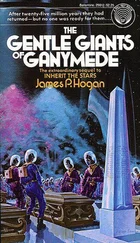James Hogan - Inherit the Stars
Здесь есть возможность читать онлайн «James Hogan - Inherit the Stars» весь текст электронной книги совершенно бесплатно (целиком полную версию без сокращений). В некоторых случаях можно слушать аудио, скачать через торрент в формате fb2 и присутствует краткое содержание. Жанр: Фантастика и фэнтези, на английском языке. Описание произведения, (предисловие) а так же отзывы посетителей доступны на портале библиотеки ЛибКат.
- Название:Inherit the Stars
- Автор:
- Жанр:
- Год:неизвестен
- ISBN:нет данных
- Рейтинг книги:3 / 5. Голосов: 1
-
Избранное:Добавить в избранное
- Отзывы:
-
Ваша оценка:
- 60
- 1
- 2
- 3
- 4
- 5
Inherit the Stars: краткое содержание, описание и аннотация
Предлагаем к чтению аннотацию, описание, краткое содержание или предисловие (зависит от того, что написал сам автор книги «Inherit the Stars»). Если вы не нашли необходимую информацию о книге — напишите в комментариях, мы постараемся отыскать её.
Inherit the Stars — читать онлайн бесплатно полную книгу (весь текст) целиком
Ниже представлен текст книги, разбитый по страницам. Система сохранения места последней прочитанной страницы, позволяет с удобством читать онлайн бесплатно книгу «Inherit the Stars», без необходимости каждый раз заново искать на чём Вы остановились. Поставьте закладку, и сможете в любой момент перейти на страницу, на которой закончили чтение.
Интервал:
Закладка:
Danchekker scanned the faces challengingly. "Well, where did it come from? It seems out of character with the sedate and easygoing pattern of evolution on Earth. Now we see where it came from: It appeared as a mutation among the evolving primates that were isolated on Minerva. It was transmitted through the population there until it became a racial characteristic. It proved to be such a devastating weapon in the survival struggle there that effective opposition ceased to exist. The inner driving force that it produced was such that the Lunarians were flying spaceships while their contemporaries on Earth were still playing with pieces of stone.
"That same driving force we see in man today. Man has proved invincible in every challenge that the Universe has thrown at him. Perhaps this force has been diluted somewhat in the time that has elapsed since it first appeared on Minerva; we reached the brink of that same precipice of self-destruction but stepped back. The Lunarians hurled themselves in regardless. It could be that this was why they did not seek a solution by cooperation-their in-built tendency to violence made them simply incapable of conceiving such a formula.
"But this is typical of the way in which evolution works. The forces of natural selection will always operate in such a way as to bend and shape a new mutation, and to preserve a variation of it that offers the best prospects of survival for the species as a whole. The raw mutation that made the Lunarians what they were was too extreme and resulted in their downfall. Improvement has taken the form of a dilution, which results in a greater psychological stability of the race. Thus, we survive where they perished."
Danchekker paused to finish his drink. The statues remained statues.
"What an incredible race they must have been," he said. "Consider in particular the handful who were destined to become the forefathers of mankind. They had endured a holocaust unlike anything we can even begin to imagine. They had watched their world and everything that was familiar explode in the skies above their heads. After this, abandoned in an airless, waterless, lifeless, radioactive desert, they were slaughtered beneath the billions of tons of Minervan debris that crashed down from the skies to complete the ruin of all their hopes and the total destruction of all they had achieved.
"A few survived to emerge onto the surface after the bombardment. They knew that they could live only for as long as their supplies and their machines lasted. There was nowhere they could go, nothing they could plan for. They did not give in. They did not know how to give in. They must have existed for months before they realized that, by a quirk of fate, a slim chance of survival existed.
"Can you imagine the feelings of that last tiny band of Lunarians as they stood amid the Lunar desolation, gazing up at the new world that shone in the sky above their heads, with nothing else alive around them and, for all they knew, nothing else alive in the Universe? What did it take to attempt that one-way journey into the unknown? We can try to imagine, but we will never know. Whatever it took, they grasped at the straw that was offered and set off on that journey.
"Even this was only the beginning. When they stepped out of their ships onto the alien world, they found themselves in the midst of one of the most ruthless periods of competition and extinction in the history of the Earth. Nature ruled with an uncompromising hand. Savage beasts roamed the planet; the climate was in turmoil following the gravitational upheavals caused by the arrival of the Moon; possibly they were decimated by unknown diseases. It was an environment that none of their experience had prepared them for. Still they refused to yield. They learned the ways of the new world: They learned to feed by hunting and trapping, to fight with spear and club; they learned how to shelter from the elements, to read and interpret the language of the wild. And as they became proficient in these new arts they grew stronger and ventured farther afield. The spark that they had brought with them and which had carried them through on the very edge of extinction began to glow bright once again. Finally that glow erupted into the flame that had swept all before it on Minerva; they emerged as an adversary more fearsome and more formidable than anything the Earth had ever known. The Neanderthals never stood a chance-they were doomed the moment the first Lunarian foot made contact with the soil of Earth.
"The outcome you see all around you today. We stand undisputed masters of the Solar System and poised on the edge of interstellar space itself, just as they did fifty thousand years ago."
Danchekker placed his glass carefully on the table and moved slowly toward the center of the room. His sober gaze shifted from eye to eye. He concluded: "And so, gentlemen, we inherit the stars.
"Let us go out, then, and claim our inheritance. We belong to a tradition in which the concept of defeat has no meaning. Today the stars and tomorrow the galaxies. No force exists in the Universe that can stop us."
Epilogue
Professor Hans Jacob Zeiblemann, of the Department of Paleontology of the University of Geneva, finished his entry for the day in his diary, closed the book with a grunt, and returned it to its place in the tin box underneath his bed. He hoisted his two-hundred-pound bulk to its feet and, drawing his pipe from the breast pocket of his bush shirt, moved a pace across the tent to knock out the ash on the metal pole by the door. As he stood packing a new fill of tobacco into the bowl, he gazed out over the arid landscape of northern Sudan.
The Sun had turned into a deep gash just above the horizon, oozing blood-red liquid rays that drenched the naked rock for miles around. The tent was one of three that stood crowded together on a narrow sandy shelf. The shelf was formed near the bottom of a steep-sided rocky valley, dotted with clumps of coarse bush and desert scrub that clustered together along the valley floor and petered out rapidly, without gaining the slopes on either side. On a wider shelf beneath stood the more numerous tents of the native laborers. Obscure odors wafting upward from this direction signaled that preparation of the evening meals had begun. From farther below came the perpetual sound of the stream, rushing and clattering and jostling on its way to join the waters of the distant Nile.
The crunch of boots on gravel sounded nearby. A few seconds later Zeiblemann’s assistant, Jorg Hutfauer, appeared, his shirt dark and streaked with perspiration and grime.
"Phew!" The newcomer halted to mop his brow with something that had once been a handkerchief. "I’m whacked. A beer, a bath, dinner, then bed-that’s my program for tonight."
Zeiblemann grinned. "Busy day?"
"Haven’t stopped. We’ve extended sector five to the lower terrace. The subsoil isn’t too bad there at all. We’ve made quite a bit of progress."
"Anything new?"
"I brought these up-thought you might be interested. There’s more below, but it’ll keep till you come down tomorrow." Hutfauer passed across the objects he had been carrying and continued on into the tent to retrieve a can of beer from the pile of boxes and cartons under the table.
"Mmm…" Zeiblemann turned the bone over in his hand. "Human femur… heavy." He studied the unusual curve and measured the proportions with his eye. "Neanderthal, I’d say, or very near related."
"That’s what I thought."
The professor placed the fossil carefully in a tray, covered it with a cloth, and laid the tray on the chest standing just inside the tent doorway. He picked up a hand-sized blade of flint, simply but effectively worked by the removal of long, thin flakes.
"What did you make of this?" he asked.
Читать дальшеИнтервал:
Закладка:
Похожие книги на «Inherit the Stars»
Представляем Вашему вниманию похожие книги на «Inherit the Stars» списком для выбора. Мы отобрали схожую по названию и смыслу литературу в надежде предоставить читателям больше вариантов отыскать новые, интересные, ещё непрочитанные произведения.
Обсуждение, отзывы о книге «Inherit the Stars» и просто собственные мнения читателей. Оставьте ваши комментарии, напишите, что Вы думаете о произведении, его смысле или главных героях. Укажите что конкретно понравилось, а что нет, и почему Вы так считаете.


![Лаура Бренз - Потомственная ведьма[Inherit the Witch]](/books/79609/laura-brenz-potomstvennaya-vedma-inherit-the-witch-thumb.webp)








